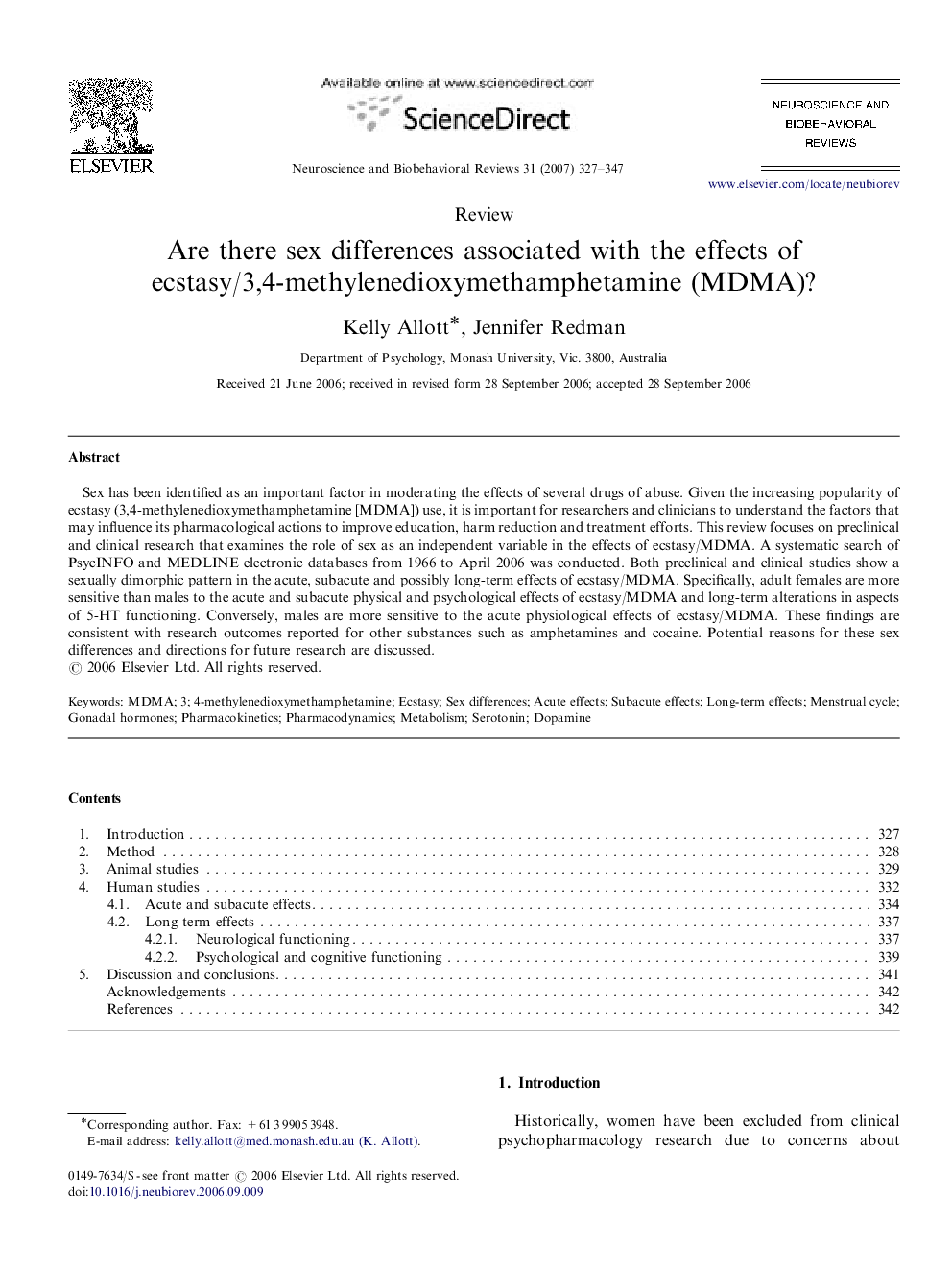| Article ID | Journal | Published Year | Pages | File Type |
|---|---|---|---|---|
| 938260 | Neuroscience & Biobehavioral Reviews | 2007 | 21 Pages |
Sex has been identified as an important factor in moderating the effects of several drugs of abuse. Given the increasing popularity of ecstasy (3,4-methylenedioxymethamphetamine [MDMA]) use, it is important for researchers and clinicians to understand the factors that may influence its pharmacological actions to improve education, harm reduction and treatment efforts. This review focuses on preclinical and clinical research that examines the role of sex as an independent variable in the effects of ecstasy/MDMA. A systematic search of PsycINFO and MEDLINE electronic databases from 1966 to April 2006 was conducted. Both preclinical and clinical studies show a sexually dimorphic pattern in the acute, subacute and possibly long-term effects of ecstasy/MDMA. Specifically, adult females are more sensitive than males to the acute and subacute physical and psychological effects of ecstasy/MDMA and long-term alterations in aspects of 5-HT functioning. Conversely, males are more sensitive to the acute physiological effects of ecstasy/MDMA. These findings are consistent with research outcomes reported for other substances such as amphetamines and cocaine. Potential reasons for these sex differences and directions for future research are discussed.
